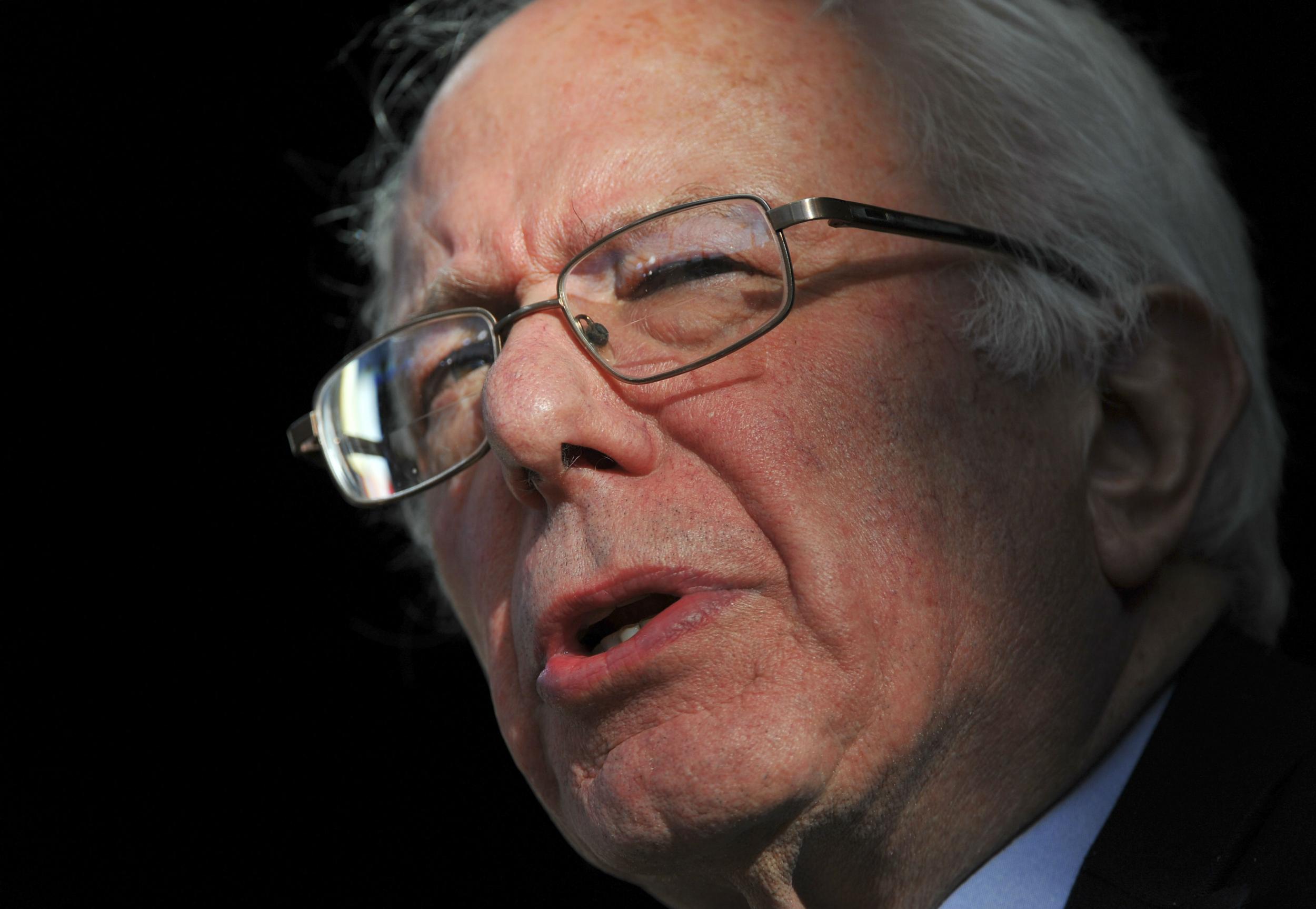Fears of violence at Democrat convention grow after chaos mars Nevada state gathering
The Sanders campaing is alleging the party has treated it unfairly from the very start

Fears are growing in some quarters of the Democratic Party that angry Bernie Sanders supporters could disrupt the national convention in Philadelphia in July and spur violence.
The risk of trouble in Philadelphia has been brought to the fore amidst widespread recriminations after a state convention in Nevada at the weekend ended in chaos with Sanders supporters furiously asserting that party officials had skewed the rules against their candidate.
Senator Sanders, who now has almost no chance of snatching the nomination from his rival, Hillary Clinton, has so far only issued a vague statement condemning violence but has failed directly to disown those of his supporters who triggered the ruckus in Las Vegas on Saturday.
Enraged at the large number of delegates awarded by the state party to Ms Clinton at the convention, Sanders supporters began booing, attempting to storm the stage and throwing chairs. The state party chairwoman, Roberta Lange, said even on Wednesday that she was still receiving death threats from Sanders supporters on her telephone.
In the fall-out from those events, the Sanders campaign has found itself engaged in a series of tart exchanges with the party’s most senior official, Representative Debbie Wasserman Schultz of Florida, who is also the national party chairwoman.
The rift that the Clinton-Sanders competition has opened in the party will only have been deepened by results of Tuesday night’s primaries when Mr Sanders extended a long streak of wins by taking Oregon while Ms Clinton appeared to have eked out a victory in Kentucky.
Mr Sanders again vowed on Tuesday night that he will stay in the race against the former first lady “until the last vote is cast”, which technically means 14 June, when the primary contests come to an end with voting in Washington DC. Thereafter, if it is clear he is the loser, he will come under intense pressure to seek to unify the party and throw his support behind Ms Clinton.
The reluctance of Mr Sanders to disassociate himself from what happened in Nevada is rattling nerves in the party. Among those chastising him is Senator Tim Kaine of Virginia, who has long been seen as a likely vice presidential pick for Ms Clinton. “That deflection of responsibility is not leadership,” he said of Mr Sanders’ response so far.
Mr Sanders and his top aides have in fact fanned suspicions among his grassroots supporters that the party hierarchy has sought from the start of the race to deliver whatever advantages it can to the Clinton campaign. But state party officials in Nevada said it was simply a matter of the Clinton camp being far better organised that the Sanders team in gathering delegates
California Senator Barbara Boxer, who was at the Nevada convention and has called what happened there “terrible”, insisted it was time the Sanders campaign took responsibility, for fear the national convention turns ugly.
“We just can’t have a repeat of that in Philadelphia because it’s distressing,” she said. “I have a message to the Bernie people who are planning to be disobedient because the system is rigged. Here is the thing: They should support the Democratic candidate who got the most votes. They should support the Democratic candidate who got the most delegates. There is nothing to protest.”
For most of the spring, worries about the potential for convention violence was focused on the Republicans who will be gathering one week ahead of the Democrats in Cleveland. But the risk of trouble in Ohio seems to have diminished now that Donald Trump has established himself as the presumptive Republican nominee and the prospect of a floor-fight has mostly gone away.
The Nevada state party has filed a formal complaint to the Democratic National Committee about the failure of the Sanders campaign to control its own supporters. It spoke of a “very dangerous atmosphere that ended in chaos and physical threats to fellow Democrats” that could be indicative of what could happen in Philadelphia in July.
Ms Wasserman Schultz said that the half-apology issued by Mr Sanders on Tuesday had “been anything but acceptable”. That in turn drew a sharp rebuke from top Sanders strategist, Jeff Weaver. “Debbie Wasserman Schultz has really been the divider and not really provided the kind of leadership that the Democratic Party needs,” he said.
Subscribe to Independent Premium to bookmark this article
Want to bookmark your favourite articles and stories to read or reference later? Start your Independent Premium subscription today.

Join our commenting forum
Join thought-provoking conversations, follow other Independent readers and see their replies